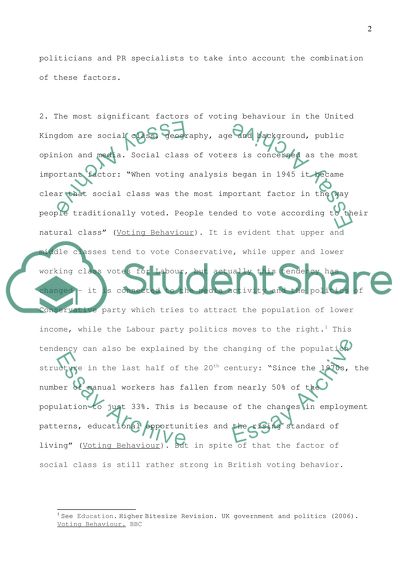Cite this document
(“Voting Behaviour in the United Kingdom Essay Example | Topics and Well Written Essays - 1500 words”, n.d.)
Voting Behaviour in the United Kingdom Essay Example | Topics and Well Written Essays - 1500 words. Retrieved from https://studentshare.org/miscellaneous/1512713-voting-behaviour-in-the-united-kingdom
Voting Behaviour in the United Kingdom Essay Example | Topics and Well Written Essays - 1500 words. Retrieved from https://studentshare.org/miscellaneous/1512713-voting-behaviour-in-the-united-kingdom
(Voting Behaviour in the United Kingdom Essay Example | Topics and Well Written Essays - 1500 Words)
Voting Behaviour in the United Kingdom Essay Example | Topics and Well Written Essays - 1500 Words. https://studentshare.org/miscellaneous/1512713-voting-behaviour-in-the-united-kingdom.
Voting Behaviour in the United Kingdom Essay Example | Topics and Well Written Essays - 1500 Words. https://studentshare.org/miscellaneous/1512713-voting-behaviour-in-the-united-kingdom.
“Voting Behaviour in the United Kingdom Essay Example | Topics and Well Written Essays - 1500 Words”, n.d. https://studentshare.org/miscellaneous/1512713-voting-behaviour-in-the-united-kingdom.


